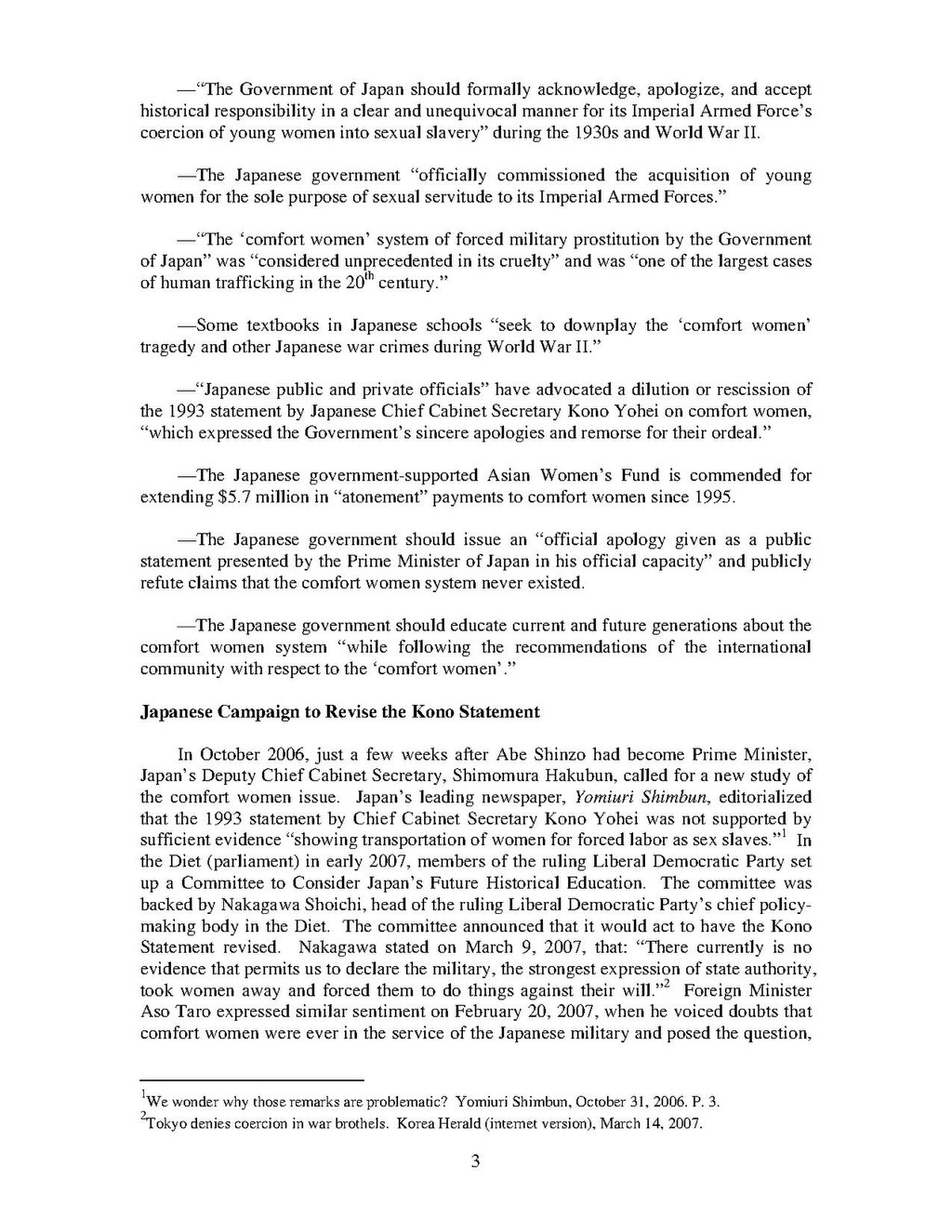—“The Government of Japan should formally acknowledge, apologize, and accept historical responsibility in a clear and unequivocal manner for its Imperial Armed Force’s coercion of young women into sexual slavery” during the 1930s and World War II.
—The Japanese government “officially commissioned the acquisition of young women for the sole purpose of sexual servitude to its Imperial Armed Forces.”
—“The ‘comfort women’ system of forced military prostitution by the Government of Japan” was “considered unprecedented in its cruelty” and was “one of the largest cases of human trafficking in the 20th century.”
—Some textbooks in Japanese schools “seek to downplay the ‘comfort women’ tragedy and other Japanese war crimes during World War II.”
—“Japanese public and private officials” have advocated a dilution or rescission of the 1993 statement by Japanese Chief Cabinet Secretary Kono Yohei on comfort women, “which expressed the Government’s sincere apologies and remorse for their ordeal.”
—The Japanese government-supported Asian Women’s Fund is commended for extending $5.7 million in “atonement” payments to comfort women since 1995.
—The Japanese government should issue an “official apology given as a public statement presented by the Prime Minister of Japan in his official capacity” and publicly refute claims that the comfort women system never existed.
—The Japanese government should educate current and future generations about the comfort women system “while following the recommendations of the international community with respect to the ‘comfort women’.”
Japanese Campaign to Revise the Kono Statement
In October 2006, just a few weeks after Abe Shinzo had become Prime Minister, Japan’s Deputy Chief Cabinet Secretary, Shimomura Hakubun, called for a new study of the comfort women issue. Japan’s leading newspaper, Yomiuri Shimbun, editorialized that the 1993 statement by Chief Cabinet Secretary Kono Yohei was not supported by sufficient evidence “showing transportation of women for forced labor as sex slaves.”[1] In the Diet (parliament) in early 2007, members of the ruling Liberal Democratic Party set up a Committee to Consider Japan’s Future Historical Education. The committee was backed by Nakagawa Shoichi, head of the ruling Liberal Democratic Party’s chief policy-making body in the Diet. The committee announced that it would act to have the Kono Statement revised. Nakagawa stated on March 9, 2007, that: “There currently is no evidence that permits us to declare the military, the strongest expression of state authority, took women away and forced them to do things against their will.”[2] Foreign Minister Aso Taro expressed similar sentiment on February 20, 2007, when he voiced doubts that comfort women were ever in the service of the Japanese military and posed the question,
- ↑ We wonder why those remarks are problematic? Yomiuri Shimbun, October 31, 2006. P. 3.
- ↑ Tokyo denies coercion in war brothels. Korea Herald (internet version), March 14, 2007.
3
